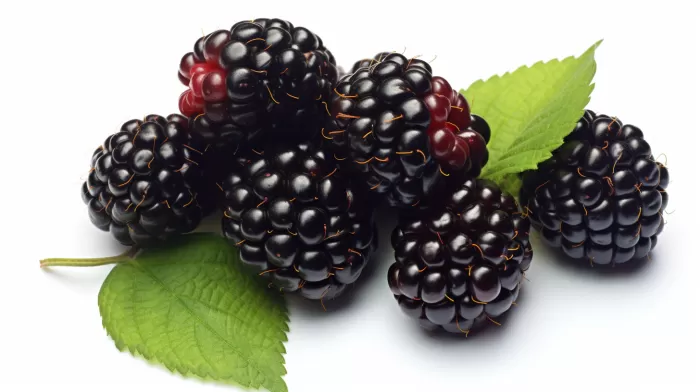Esophageal cancer is a deadly disease that affects more than 18,000 Americans each year, with a devastating 80 percent of those diagnosed dying within five years. But hope may be on the horizon as recent research has discovered that a common fruit can help combat this lethal condition.
Research conducted at the Ohio State Comprehensive Cancer Center has found that black raspberries contain unique chemicals called anthocyanins which can slow the growth of cancer cells and encourage these harmful cells to self-destruct in a process known as apoptosis.
What are anthocyanins?
Anthocyanins are natural plant pigments that belong to the grouping of organic compounds known as flavonoids. These antioxidant pigments are responsible for the bright colors of many fruits, flowers, and vegetables. Though they might not be as well-known as vitamins and minerals, flavonoids are crucial for maintaining our body’s overall health. Researcher and Professor of Internal Medicine Gary D. Stoner explains, “Our data provide strong evidence that anthocyanins are important for cancer prevention.”
Anthocyanins have a wide range of health benefits, including their anti-inflammatory and anti-viral properties, which can help lower the risk of chronic diseases such as heart disease, obesity, and type 2 diabetes. They can also enhance our immune system, boost brain function, and support eye health.
Black Raspberries in Action
Applying these properties in the lab, the Ohio State scientists fed lab animals either black raspberries or extracts of the raspberries that contained a concentrated amount of anthocyanins. The results of this experiment demonstrated that both the extract and whole raspberries provided a protective effect against esophageal cancer.
The team is now working on developing more potent extracts that can attack cancer more effectively. As Stoner points out, “Now that we know the anthocyanins in berries are almost as active as whole berries themselves, we hope to be able to prevent cancer in humans using a standardized mixture of anthocyanins.” The ultimate goal is to test these anthocyanin mixtures on multiple organ sites in humans.
Beyond Black Raspberries
Black raspberries should not be confused with blackberries or red raspberries, as they are a distinct fruit with a unique nutritional profile. However, if you cannot find black raspberries at your local grocery store or farmer’s market, there’s still good news. Many other types of berries, such as strawberries, blueberries, and elderberries, also contain anthocyanins, albeit in different concentrations. These fruits, along with other anthocyanin-rich foods like red cabbage, purple potatoes, black soybeans, and red onions, can provide you with a healthful dose of these powerful flavonoids.
Incorporating Anthocyanin-Rich Foods into Your Diet
Incorporating anthocyanin-rich foods into your diet doesn’t have to be complicated. Here are some simple ideas to eat more of these cancer-fighting compounds:
- Add a variety of colorful berries to your breakfast cereal, yogurt, or smoothie
- Make a vibrant salad with red cabbage, purple potatoes, and other colorful vegetables
- Snack on black soybeans, which can be eaten roasted or as a hummus
- Use red onions instead of white or yellow onions when cooking
To maximize the health benefits of anthocyanins, aim to eat a diverse range of color-rich plant foods, as different anthocyanin molecules can have different effects on the body. Be sure to consume these fresh, whole, and unprocessed as much as possible to get the most nutritional value.
Conclusion
The discovery that black raspberry anthocyanins can help combat esophageal cancer is a significant breakthrough in the pursuit of cancer prevention and treatment options. By understanding and utilizing the power of these natural compounds, we can work towards reducing the risk of this life-threatening condition and improve overall health. Start adding more anthocyanin-rich foods to your diet today and take a proactive approach toward a healthier future.



